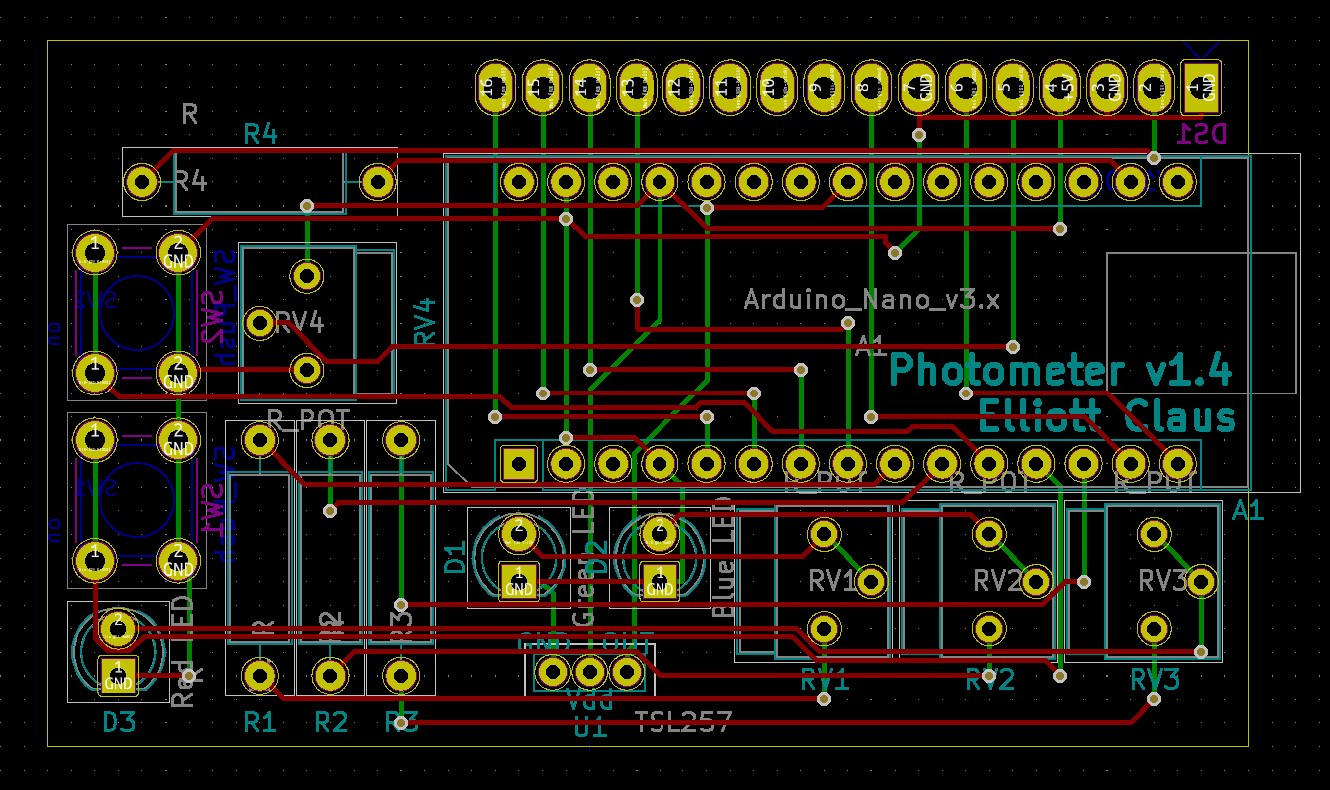diy photometer
Table of Contents
Designing and manufacturing a DIY Photometer


Photometer and custom PCB
What is a photometer?
A photometer is a device that measures the transmission of light through a liquid, from which you can calculate properties of the liquid. The photometer that I designed measures the pH of seawater.
Abstract
Many professional biologists are doing ocean acidification research, but this requires expensive machinery to monitor pH levels accurately. This project’s goal is to make an accessible and accurate DIY photometer to measure ocean pH, with the goal of it being used in high school classrooms. This photometer is upgraded from a design by Yang et al. in their paper, “Seawater PH Measurements in the Field: A DIY Photometer with 0.01 Unit PH Accuracy.” The main improvements involve simplifying the building process using a custom printed circuit board (PCB), having clear building instructions and usage procedures, adding a third LED to make the measurements more accurate, and updating code to calculate the pH on the device. After testing, this DIY photometer design successfully meets the +/- 0.01 pH precision, while being simple and cost effective to build. The total cost is around $80.
Skills demonstrated:
- Research/reading scientific literature
- Project management
- Prototyping and design
- SolidWorks
- KiCAD/PCB design
- Coding for Arduino
- Experiment design and execution
- Data analysis
Related links:
- Build Instructions
- Sample Procedure
- Google drive folder with all project files